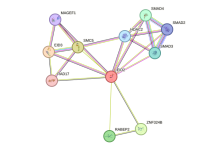Benefits of Breastfeeding for Infant Nutrition and Bonding
Right after the baby is born, most mothers forget about the labor pains but feel a strong maternal instinct. Thanks to it, even women who give birth to a child for the first time intuitively know how to breastfeed. After birth, the baby feels best in your surroundings while you give it a sense of safety and comfort. It easily finds its way to your breast and turns its face towards you.
Breastfeeding appears to help strengthen your baby’s immune system and reduce their risk of contracting certain infections. Breastfeeding appears to help strengthen your baby’s immune system and reduce their risk of contracting certain infections.
To address the nutritional demands of babies who are not breastfed, HiPP Baby Formula is carefully made to offer critical nutrients for babies between the ages of 0 and 12 months. It comes in a range of different flavors. Research indicates that babies who are breastfed experience fewer hospitalizations and generally have better health, which translates into fewer sick visits to the pediatrician. Do you know the advantages of breastfeeding for your baby’s physical and mental health? Keep reading to learn more.

Nutritional Benefits of Breastfeeding
Breast milk contains carbohydrates, fats, and proteins, as well as numerous enzymes responsible for its digestion. It is also rich in mineral salts: magnesium, copper, iron, zinc, calcium, sodium, and phosphorus. Breast milk also contains all the vitamins necessary for the baby’s development:
-
Vitamin A is responsible for the development and proper functioning of the retina, skin, and mucous membranes.
-
vitamin D, essential for bone growth.
-
vitamin E, which protects against free radicals contained in pollution and solar radiation.






